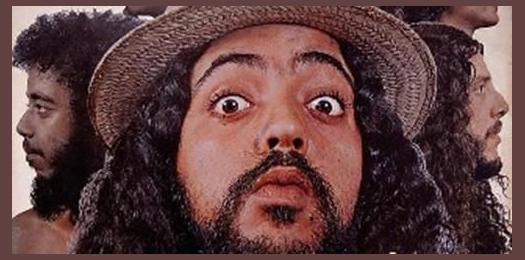 Odair Cabeça de Poeta
Odair Cabeça de Poeta
Odair Cabeça de Poeta: The Troubadour of Brazilian Popular Music
In the annals of Brazilian popular music, Odair Cabeça de Poeta occupies a unique place. His poignant lyrics, unforgettable melodies, and singular voice have captivated generations of listeners. From humble beginnings to the heights of fame, his journey was marked by both triumph and adversity.
Early Life and Inspirations
Born Odacyr Braz in 1937 in the northeastern state of Pernambuco, Odair's musical roots were deeply embedded in the traditional rhythms and melodies of his homeland. As a young man, he immersed himself in the works of writers such as Carlos Drummond de Andrade and João Cabral de Melo Neto, whose poetic sensibilities would profoundly influence his own songwriting.
Musical Breakthrough
In the mid-1960s, Odair's career took a dramatic turn when he released the song "Feira da Fruta." With its infectious melody and lyrics that evoked the sights and sounds of a bustling market, the song became an instant hit, propelling Odair to national fame.
Success and Controversy
Over the next decade, Odair released a string of popular albums, including "Odair" (1968), "Coisas do Mundo" (1971), and "Senhora Cigana" (1972). His songs, often bittersweet and reflective, resonated with the aspirations and complexities of Brazilian society.
However, Odair's outspoken nature and willingness to challenge social norms also made him a target of controversy. His songs were frequently banned by the military dictatorship that ruled Brazil at the time, and he faced accusations of communism.
Members
Despite the challenges, Odair continued to write and perform, collaborating with a talented group of musicians over the years. Notable members of his band included:
* Sérgio Natureza (bass)
* Marcus Vinícius (drums)
* Murilo Alvarenga (guitar)
Discography
Odair Cabeça de Poeta has released over 30 albums throughout his prolific career, including:
* Feira da Fruta (1967)
* Odair (1968)
* Coisas do Mundo (1971)
* Senhora Cigana (1972)
* A Estrada Vai Longe (1975)
* Canto Livre (1978)
* O Poeta (2000)
* Meu Canto (2014)
Legacy
Odair Cabeça de Poeta's influence on Brazilian music is immeasurable. His songs have been covered by countless artists, and his poetic lyrics have inspired generations of musicians. Despite the passage of time, his music continues to resonate with audiences today, solidifying his status as one of Brazil's most enduring and beloved troubadours.
In the annals of Brazilian popular music, Odair Cabeça de Poeta occupies a unique place. His poignant lyrics, unforgettable melodies, and singular voice have captivated generations of listeners. From humble beginnings to the heights of fame, his journey was marked by both triumph and adversity.
Early Life and Inspirations
Born Odacyr Braz in 1937 in the northeastern state of Pernambuco, Odair's musical roots were deeply embedded in the traditional rhythms and melodies of his homeland. As a young man, he immersed himself in the works of writers such as Carlos Drummond de Andrade and João Cabral de Melo Neto, whose poetic sensibilities would profoundly influence his own songwriting.
Musical Breakthrough
In the mid-1960s, Odair's career took a dramatic turn when he released the song "Feira da Fruta." With its infectious melody and lyrics that evoked the sights and sounds of a bustling market, the song became an instant hit, propelling Odair to national fame.
Success and Controversy
Over the next decade, Odair released a string of popular albums, including "Odair" (1968), "Coisas do Mundo" (1971), and "Senhora Cigana" (1972). His songs, often bittersweet and reflective, resonated with the aspirations and complexities of Brazilian society.
However, Odair's outspoken nature and willingness to challenge social norms also made him a target of controversy. His songs were frequently banned by the military dictatorship that ruled Brazil at the time, and he faced accusations of communism.
Members
Despite the challenges, Odair continued to write and perform, collaborating with a talented group of musicians over the years. Notable members of his band included:
* Sérgio Natureza (bass)
* Marcus Vinícius (drums)
* Murilo Alvarenga (guitar)
Discography
Odair Cabeça de Poeta has released over 30 albums throughout his prolific career, including:
* Feira da Fruta (1967)
* Odair (1968)
* Coisas do Mundo (1971)
* Senhora Cigana (1972)
* A Estrada Vai Longe (1975)
* Canto Livre (1978)
* O Poeta (2000)
* Meu Canto (2014)
Legacy
Odair Cabeça de Poeta's influence on Brazilian music is immeasurable. His songs have been covered by countless artists, and his poetic lyrics have inspired generations of musicians. Despite the passage of time, his music continues to resonate with audiences today, solidifying his status as one of Brazil's most enduring and beloved troubadours.